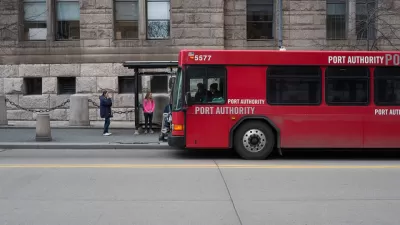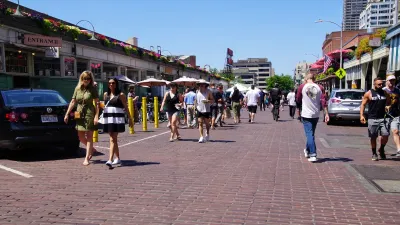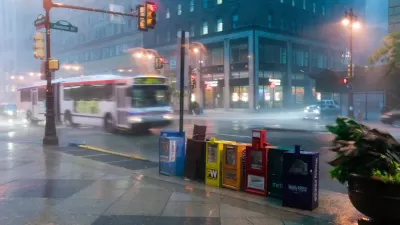King County Metro operates one of the nation’s busiest transit systems—without running any trains. The agency recently released a playbook as a guide to transit service.

In an article published by Transportation for America, Jackson Pierce shares news and details on the “Transit Speed & Reliability Guidelines and Strategies” published by Washington State’s King County Metro in late 2021.
According to Pierce, the guide presents a “playbook” for operational tools and capital projects that can be copied by other transit agencies to save riders time and money. “At a time when building public trust in transit is essential, it’s an excellent guide to the infrastructure and services that make transit trustworthy,” write Pierce.
Kings County Metro is one of the nation’s highest performing transit agencies—"one of America’s ten most-ridden transit agencies in 2019, and the busiest not to operate any rail services,” as noted by Pierce. “They achieved this high ridership through smart comprehensive planning (and funding!) for services that run to the places where people actually go.”
As for the specific investments and strategies recommended in the guide, Pierce highlights several (with more detail to be found in the source article below), including changes to street and intersection design and bus stop planning considerations like stop consolidation and bulbouts.
An article by Jeff Switzer for King County Metro at the time of the guide’s release in November 2021 offers additional insight into the document and its recommendations.
FULL STORY: King County’s blueprint for better bus speed and reliability

Planetizen Federal Action Tracker
A weekly monitor of how Trump’s orders and actions are impacting planners and planning in America.

Restaurant Patios Were a Pandemic Win — Why Were They so Hard to Keep?
Social distancing requirements and changes in travel patterns prompted cities to pilot new uses for street and sidewalk space. Then it got complicated.

Map: Where Senate Republicans Want to Sell Your Public Lands
For public land advocates, the Senate Republicans’ proposal to sell millions of acres of public land in the West is “the biggest fight of their careers.”

Maui's Vacation Rental Debate Turns Ugly
Verbal attacks, misinformation campaigns and fistfights plague a high-stakes debate to convert thousands of vacation rentals into long-term housing.

San Francisco Suspends Traffic Calming Amidst Record Deaths
Citing “a challenging fiscal landscape,” the city will cease the program on the heels of 42 traffic deaths, including 24 pedestrians.

California Homeless Arrests, Citations Spike After Ruling
An investigation reveals that anti-homeless actions increased up to 500% after Grants Pass v. Johnson — even in cities claiming no policy change.
Urban Design for Planners 1: Software Tools
This six-course series explores essential urban design concepts using open source software and equips planners with the tools they need to participate fully in the urban design process.
Planning for Universal Design
Learn the tools for implementing Universal Design in planning regulations.
Heyer Gruel & Associates PA
JM Goldson LLC
Custer County Colorado
City of Camden Redevelopment Agency
City of Astoria
Transportation Research & Education Center (TREC) at Portland State University
Camden Redevelopment Agency
City of Claremont
Municipality of Princeton (NJ)





























